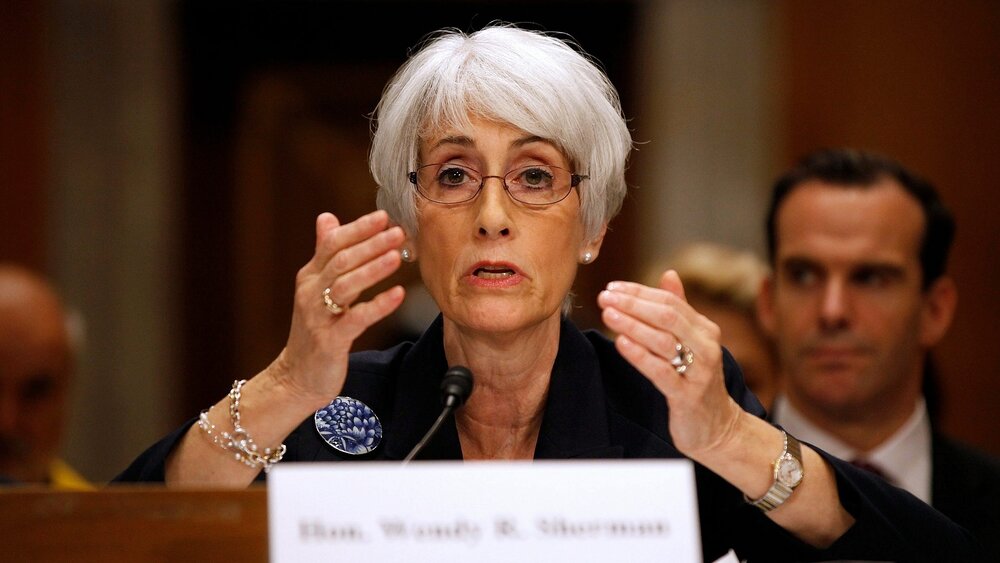Sherman rejects argument that Iran has upper hand in Vienna talks

TEHRAN – U.S. Deputy Secretary of State Wendy Sherman, in an interview with MSNBC on Thursday, denied assertions that Iran has the upper hand in the Vienna talks intended to lift illegal sanctions on Iran.
"We're not going to (just) accept anything Iran has to offer," Sherman said. "We will reenter the JCPOA in its fullness if Iran maintains compliance with it.
"And all of our options always remain on the table, regardless of what gets chosen here," she said.
JCPOA or the Joint Comprehensive Plan of Action is the official name for the 2015 nuclear deal.
Supporters and opponents of the agreement have been making their voices heard in Washington in recent days as U.S. chief negotiator Rob Malley gave a closed-door briefing to the Senate on Wednesday.
Senator Bob Menendez, chairman of the Senate Foreign Relations Committee, is among the Democrats who are more skeptical.
"I think we're at a critical moment, a serious moment and we'll see which way it turns," Menendez told AFP after the briefing. "But I certainly walked away with a sense of the difficulties of the moment we are in."
Earlier this month, Menendez warned the White House against reviving the agreement as it is. "At this point, we seriously have to ask what exactly are we trying to salvage?" he said.
Opposition to the deal is strong on the right and 32 Republican senators wrote Biden recently saying any deal would need to be submitted to Congress "for evaluation" with the "possibility of Congress blocking implementation."
The Biden administration has not responded to the letter so far, apparently considering that any deal reached would be a return to an existing agreement and not a new one.
Republican lawmakers have also made it clear they oppose lifting economic sanctions imposed on Iran, saying it would reward Tehran for what they call its "destabilizing activities."
Frank von Hippel, a nuclear physicist and professor of public and international affairs emeritus with Princeton’s Program on Science and Global Security, tells the Tehran Times that “unfortunately, it is not clear today that many Republicans learn from their mistakes.”
Donald Trump pulled the United States out of the nuclear deal, which was negotiated by the Obama administration, in 2018 and reimposed sweeping sanctions on Iran.
In an interview published on December 3, 2021, U.S. Secretary Antony Blinken said, “I think the decision to pull out of the agreement was a disastrous mistake.”
Blinken added “the JCPOA was a very effective agreement” that resulted in the “most effective and intrusive monitoring” of Iran’s nuclear activities.
In a recent tweet, Democratic Senator Christopher Murphy said, “Iran got stronger and their behavior got more dangerous after we left the deal.”
Mark Dubowitz, who heads the Foundation for Defense of Democracies, which opposed the 2015 nuclear agreement, said the Iranians "know President Biden is desperate for a deal."
"So they've been squeezing the administration for concessions," he told AFP.
Dubowitz, who advocates returning to "maximum pressure, said the administration wants "to put the Iranian nuclear program back in a box" so they can concentrate on other priorities such as China.
"Problem is the box has no lid," he claimed.
Daryl Kimball, executive director of the Arms Control Association, is in favor of reviving the agreement arguing that "there are no good alternative options to promptly restoring compliance with the JCPOA."
"The fact is that without a prompt return to mutual compliance with the JCPOA, it is more than plausible, possible, and maybe even probable that Iran will try to become a threshold nuclear weapon state," Kimball said.
Iran has been insisting that it has no intention to build nuclear arms. Moreover, Leader of the Islamic Revolution Ayatollah Ali Khamenei has issued a fatwa (decree) declaring production, stockpiling and use of weapons of mass destruction, including nuclear arms, as haram (religiously forbidden).
Additionally, before Iran reduced its cooperation with the International Atomic Energy Agency in retaliation to the U.S. pullout of the nuclear deal and imposition of illegal sanctions, the Islamic Republic was subject to the most intrusive sanctions in the history of the UN nuclear watchdog.
Iran reduced its commitments to the JCPOA in accordance to paragraph 36 of the JCPOA which has provided a mechanism to resolve disputes and allows one side, under certain circumstances, to stop complying with the deal if the other side is out of compliance.
Leave a Comment